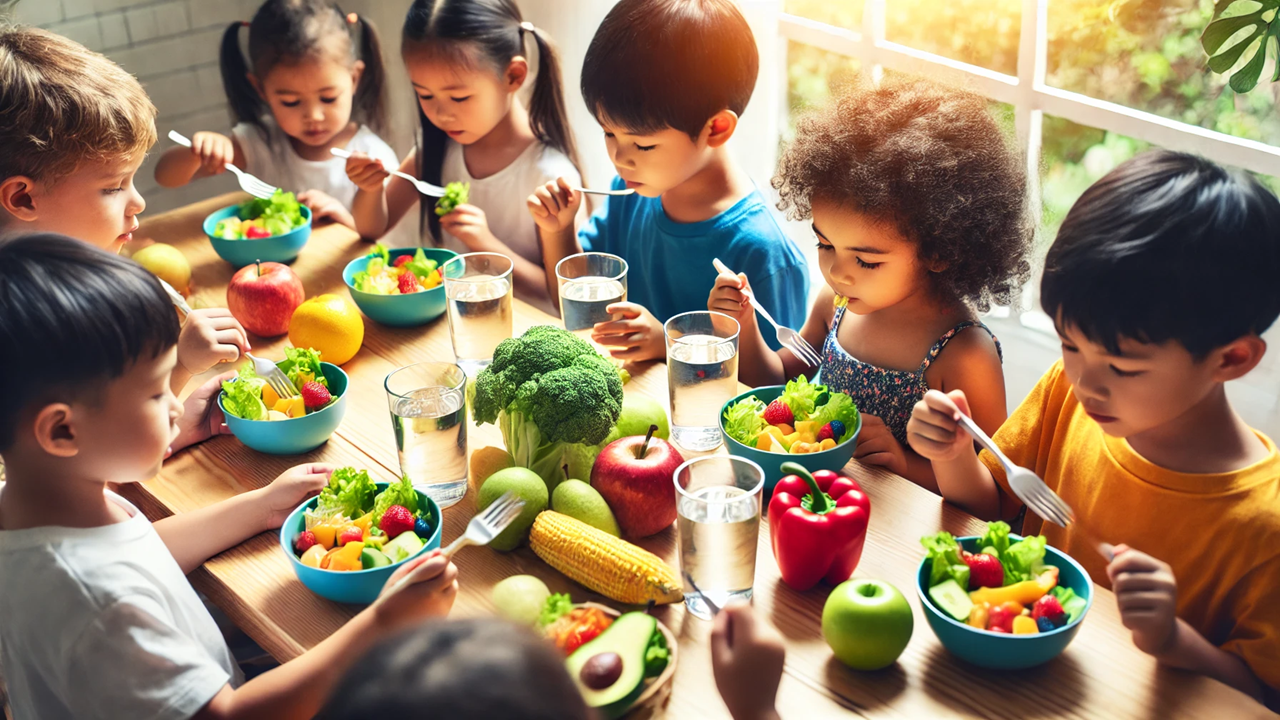UNESCO Calls for Major Upgrade in School Meal Quality to Boost Child Health and Education
In its report, UNESCO advocates for a shift toward the use of healthier, fresher ingredients in school meals.

In a world where access to school meals is becoming increasingly widespread, the nutritional value of these meals remains a critical concern, according to a new UNESCO report. This report highlights the need for stronger efforts to prioritize fresh, nutritious foods and to integrate food education into school curricula to support the health and learning outcomes of children worldwide.
The Global Challenge: School Meals and Their Nutritional Value
UNESCO’s latest findings underscore a critical issue: while many children benefit from school meal programs, the emphasis on the nutritional content of the food served is often insufficient. In 2024, around a quarter of the world’s pupils had access to school meals, with this figure rising to 47% at the primary school level. While this is a positive step toward tackling child hunger, the nutritional quality of the meals remains a key factor in achieving positive health outcomes.
In its report, UNESCO advocates for a shift toward the use of healthier, fresher ingredients in school meals. The organization emphasizes that not only do well-balanced meals reduce malnutrition, but they also improve students' academic performance. A 2023 UNESCO study revealed that school meals contribute to a 9% increase in enrollment rates and an 8% improvement in school attendance. Furthermore, providing nutritious meals is shown to support better learning outcomes, helping children focus and absorb information more effectively.
A Need for Standards and Legislation
A striking statistic from the UNESCO report is that nearly a third (27%) of school meals globally are served without the guidance of nutritionists. Of the 187 countries evaluated, only 93 have legislation, standards, or guidelines related to the provision of school food and drink. Moreover, within these 93 countries, only 65% have established regulations governing the sale of food in school cafeterias, vending machines, and food shops.
This lack of standardized practices and oversight is alarming, particularly considering the rapid rise in obesity rates among children. Since 1990, obesity rates have more than doubled in many countries. Additionally, food insecurity continues to grow worldwide, exacerbating the need for more effective school meal programs that are both nutritious and accessible.
Positive Examples of Change
Despite the challenges, there are several noteworthy initiatives that UNESCO highlights as examples of progress in improving school nutrition. Brazil, for instance, has introduced restrictions on ultra-processed products in its national school feeding program, a change that UNESCO supports. In China, the inclusion of vegetables, milk, and eggs in rural schools has significantly boosted children's nutrient intake and positively impacted school attendance rates.
One of the most successful programs cited in the report is Nigeria's Home-Grown School Feeding Programme. Launched in 2014, this initiative provides free, balanced meals to all primary school students in the country. The program has led to a remarkable 20% increase in primary school enrollment, demonstrating the potential of school meal programs to promote education and health simultaneously.
Similarly, India has made strides with its introduction of fortified organic pearl millet into school meals in Maharashtra. Rich in iron, this initiative has had a positive impact on students' attention span and memory, contributing to better academic performance.
UNESCO's Call for Action
UNESCO’s report calls on governments and education stakeholders to ensure that school meals are based on fresh, locally sourced produce, while minimizing the use of sugary and ultra-processed foods. The organization also emphasizes the importance of food education, urging countries to include nutrition and healthy eating in school curricula to equip students with lifelong knowledge about food and its impact on health.
To further support these efforts, UNESCO plans to release a series of tools aimed at helping governments and education professionals better integrate health and nutrition issues into school meal programs. These tools will include a practical manual and a comprehensive training program. Additionally, UNESCO will continue its involvement with the Coalition for School Meals, an international initiative that works to ensure every child has access to a nutritious meal at school.
Engaging Experts to Advocate for Change
In a bid to amplify its message, UNESCO has appointed two renowned chefs as Goodwill Ambassadors: Mauro Colagreco, who focuses on biodiversity, and Daniel Humm, who champions food education. Both chefs, who each hold three Michelin stars, are committed to raising awareness about the importance of sustainable agriculture and healthy food choices, particularly in UNESCO-protected sites.
Their involvement aims to bridge the gap between culinary expertise and global nutrition advocacy, helping to promote agricultural, culinary, and gastronomic products and traditions that prioritize both health and sustainability.
The Road Ahead: A Call for Global Action
UNESCO’s report on school meals is a call to action for governments, schools, and international organizations to collaborate in creating healthier and more sustainable food systems. As food insecurity and child obesity continue to rise globally, it is more critical than ever that school meals contribute not only to reducing hunger but also to fostering better health and learning outcomes for children everywhere.
By integrating nutritional standards, food education, and locally sourced ingredients into school meal programs, we can work towards a healthier, more knowledgeable generation of students—one meal at a time.
- READ MORE ON:
- UNESCO
- School Meal Quality










